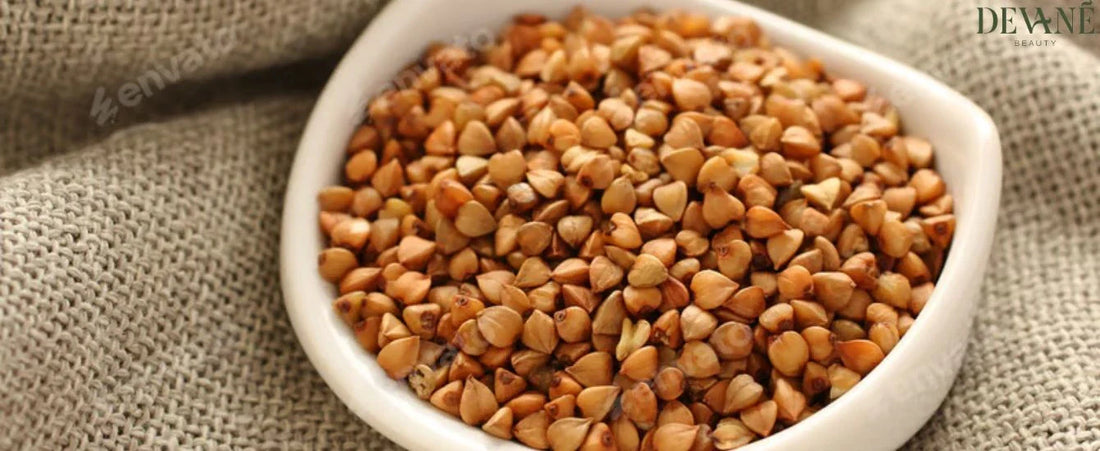Fenugreek Seeds Are Having a Moment: Here's Why Your Hair Loves Them

Fenugreek Seeds Are Having a Moment
Here's Why Your Hair Loves Them
Fenugreek seeds are getting their time in the hair care spotlight, and rightfully so. These humble kitchen staples boast a loyal and warranted fan base when it comes to stimulating hair growth, calming dandruff, and boosting all-around hair health because of their unique protein structure and natural DHT-blocking power.
The Protein Powerhouse Behind Healthy Hair
Protein is the cornerstone of normal hair architecture, and fenugreek seeds contain a whopping 23 grams of protein per 100 grams. Protein helps in strengthening hair follicles as well as stimulating thicker and stronger hair. Fenugreek amino acids repair heat-damaged hair shafts from styling, chemical treatments, and environmental damage.
In addition to common protein content, fenugreek also contains lecithin, an emollient that seeps deep into hair and roots to feed and strengthen them. The compound creates a covering sheath that keeps moisture locked in, providing the hair with added shine and gentle texture. The nicotinic acid (niacin) from the fenugreek seeds supports this by stimulating the flow of blood to the scalp, so the hair follicles are well supplied with nutrients for optimal growth.
DHT-Blocking Effects: Mother Nature's Protection from Baldness
The greatest benefit of fenugreek is that it naturally blocks dihydrotestosterone (DHT), the hormone responsible for pattern baldness and hair loss. Fenugreek contains diosgenin, a biologically active steroidal sapogenin with estrogenic activity as a natural DHT blocker.
Research indicates that 82.9% of patients exhibited improvement in hair thickening and density with supplements containing fenugreek, and 74.3% exhibited enhanced resistance of hair. This DHT-blocking mechanism works by preventing the bonding of the hormone to hair follicles, which otherwise would shrink them and produce thinner, less durable strands.
Fenugreek seeds' phytoestrogens compete with DHT by taking the place of estrogen receptors and producing beneficial estrogenic results without the risks of synthetic hormone therapies. Such a natural approach makes fenugreek particularly beneficial to people afflicted by androgenic alopecia or hormonal hair thinning.
Texture Transformation Through Natural Conditioning
Fenugreek mucilaginous fiber content creates excellent conditioning properties that change hair texture. Fenugreek seeds release a gel-like substance rich in mucilage when soaked in water. The substance is a natural detangler and moisturizer. The substance forms a protective sheath around hair strands, filling in cuticles for smoothness and accentuating natural luster.
The fenugreek's natural saponins have antifungal and antibacterial properties that maintain the scalp's health through the eradication of microorganisms that cause dandruff. Studies have shown extracts of the leaves of fenugreek displaying significant activity against the prime yeast offender in dandruff, Malassezia furfur, equal to that of ketoconazole treatments.
How to Use Fenugreek Seeds for Hair Growth
Basic Fenugreek Hair Mask
Soak 2-3 tablespoons of fenugreek seeds overnight in water. Blend the soaked seeds into fine paste and use on your scalp as well as on your hair, focusing on the roots. Leave for 30-45 minutes and wash off with lukewarm water and mild shampoo. Apply this treatment twice a week for best results.
Fenugreek Water Rinse
Boil 2 tablespoons of fenugreek seeds in 2 cups of water for 10-15 minutes. Strain and use the cooled water as a final rinse after shampooing. This is a simple daily moisturizing treatment that does not involve the mess of applying paste.
Fenugreek Oil Treatment
Warm coconut or mustard oil with fenugreek seeds until the seeds turn reddish-black and then strain. Massage the warm oil into your scalp and apply overnight for deep nourishment. This is very helpful in case of severe hair loss and damaged hair repair.
Expected Timeline and Results
Visible effects typically occur after 2-4 weeks of consistent use, with prominent growth and texture changes happening after 6-8 weeks of continuous use. Users notice reduced hair fall during the first week, with increased thickness and shine in the succeeding weeks.
For everyday usage of fenugreek water, you can safely use it on your hair every day as a leave-in treatment, though most experts recommend 2-3 times a week for deep treatments to avoid protein overloading.
Safety and Considerations
Fenugreek is safe to apply topically, although some individuals can develop a sensitivity in their scalp. Always do a patch test before applying in full. Maple syrup odor is strong and characteristic and lingers for days after use. To minimize odor, add a few drops of rosemary or lavender essential oils to your fenugreek preparations.
Fenugreek seeds are a science-based natural solution to modern hair care problems. With their full protein content, DHT-blocking effect, and conditioning effect, they constitute part of any hair growth therapy. Through constant use and appropriate application procedures, fenugreek can transform thin and damaged hair into thick, stronger, and healthier hair naturally.
